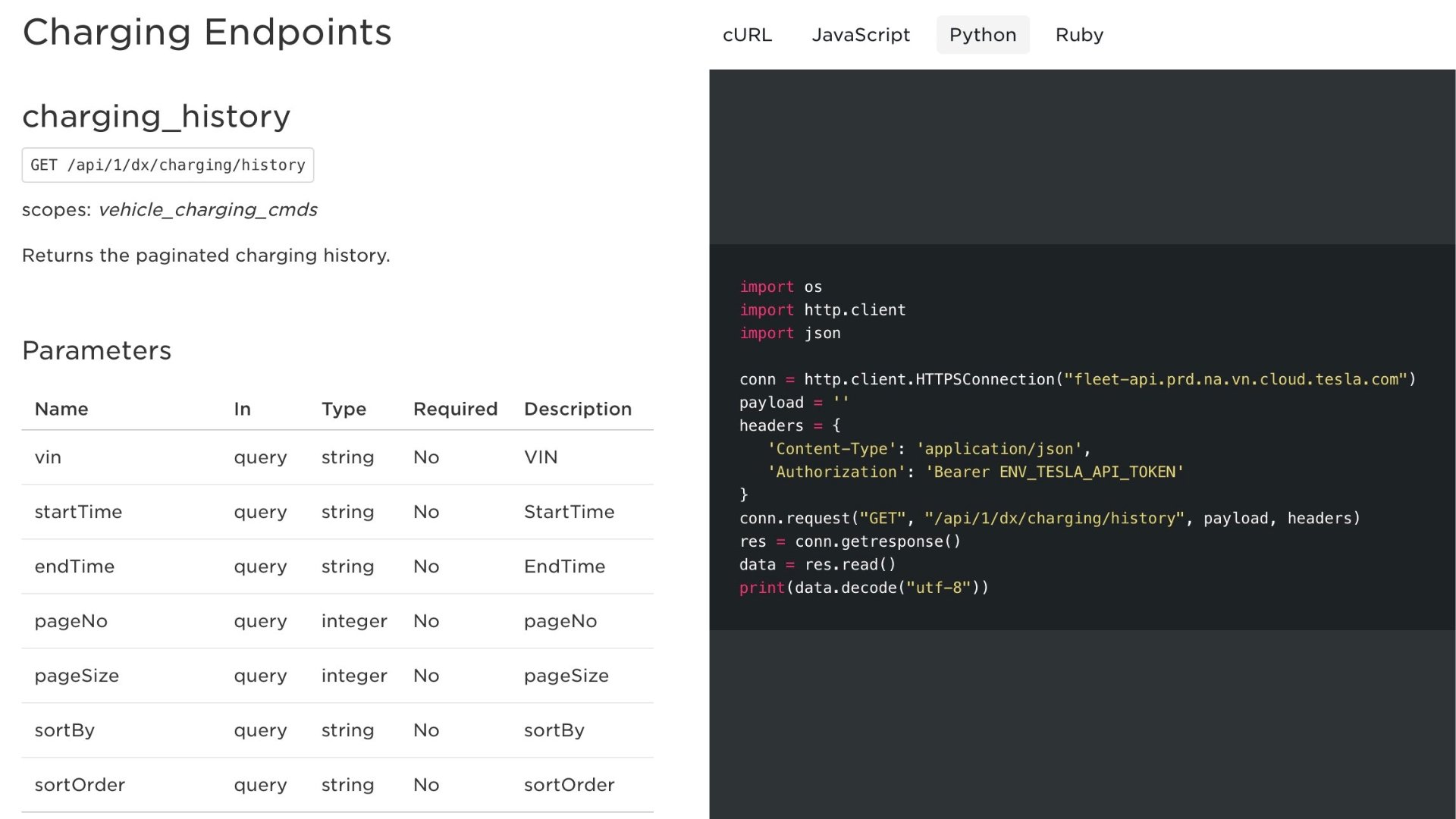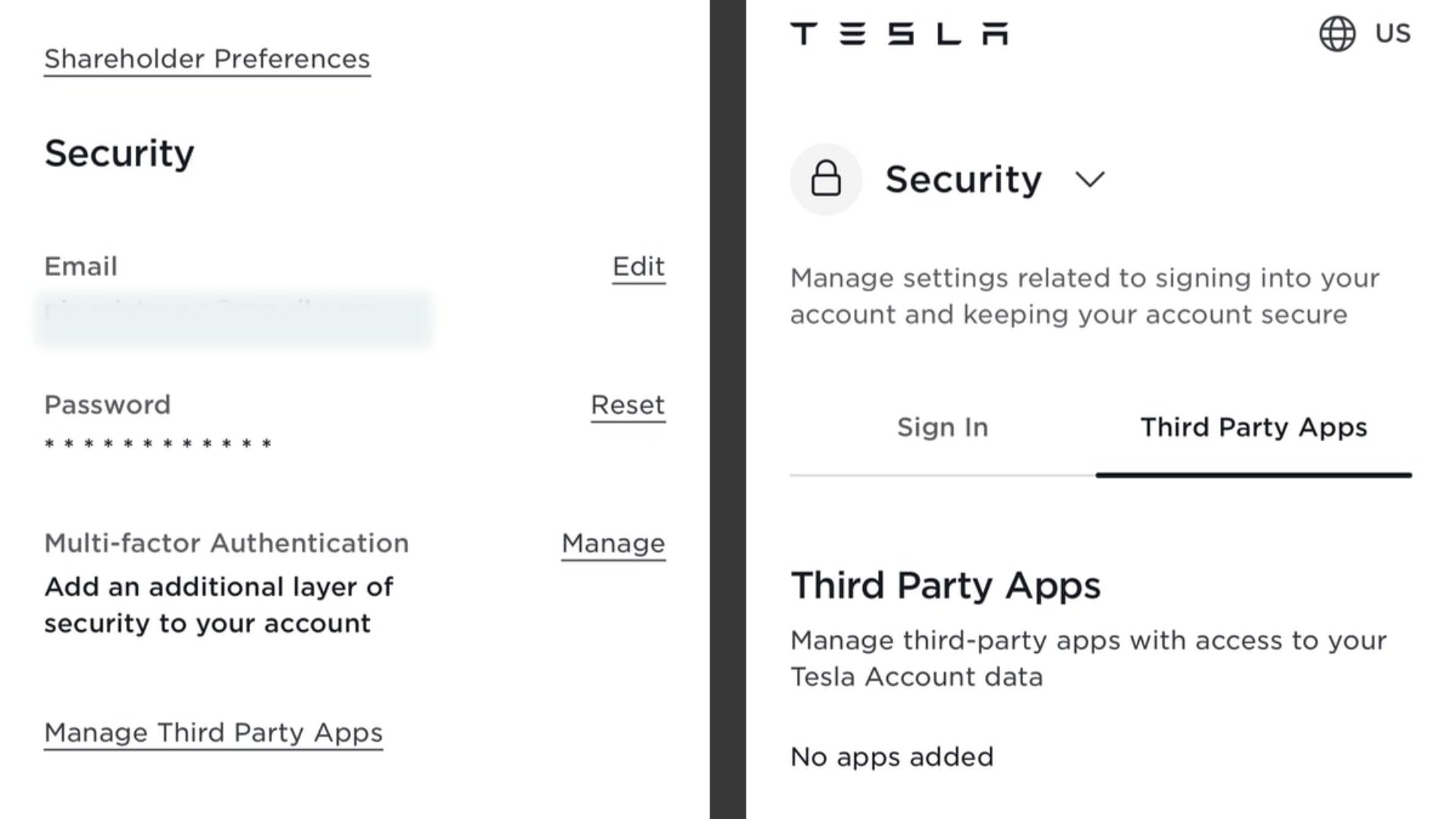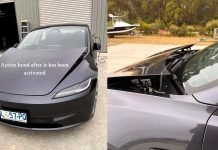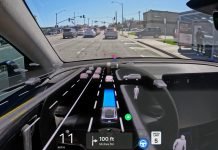In a move that has both developers and Tesla enthusiasts buzzing with excitement, Tesla has recently unveiled its new Fleet API. This API serves as a bridge between Tesla’s electric vehicles and third-party software, offering a range of functionalities that could revolutionize the way we interact with our cars.
While the API itself is a significant development, what’s equally intriguing is the speculation it has sparked about Tesla’s future plans – most notably, the potential launch of an App Store dedicated to Tesla users.

Tesla Fleet API Documentation
Tesla has rolled out the Fleet API with an initial offering called the Discovery Tier. This tier is free to use but comes with a specific limitation: users can make only one API request per car every five minutes. While this may seem restrictive, it serves as an entry point for developers to experiment and understand the API’s capabilities without incurring any costs.
Tesla has been transparent about its future plans for the Fleet API, indicating that starting in 2024, the company may introduce charges for its usage. This move could be part of Tesla’s broader strategy to monetize its software services and could also act as a filter to ensure that only serious and committed developers engage with the API.

One of the standout features of Tesla’s Fleet API is its support for multiple programming languages. The official documentation provides code examples for cURL, JavaScript, Python, and Ruby, making it accessible to a wide range of developers. This multi-language support not only lowers the entry barrier but also encourages a diverse set of applications that could enrich the Tesla ecosystem.
Tesla App Store Update
The release of Tesla’s Fleet API has fueled speculation about the company’s future plans, particularly the potential launch of a dedicated App Store for Tesla users. This isn’t a new concept, rumors have been circulating for some time that Tesla might be interested in expanding its software ecosystem in this manner.
The Fleet API could very well serve as the foundational infrastructure that allows third-party developers to create applications. These could then be featured in Tesla’s own App Store, providing users with a richer, more personalized experience. Such a platform could also offer Tesla a new avenue for revenue, especially if they decide to introduce fees for premium apps or services.

The Apple Angle: Bypassing Apple’s App Store Fees
Tesla and Apple have had a complex relationship, marked by both competition and mutual respect. While both companies operate in different sectors, their paths often cross due to their focus on innovation and user experience. Elon Musk has been vocal about his views on Apple, particularly criticizing the tech giant’s App Store policies, which he has referred to as a “30% tax on the Internet.”
Did you know Apple puts a secret 30% tax on everything you buy through their App Store? https://t.co/LGkPZ4EYcz
— Elon Musk (@elonmusk) November 28, 2022
The introduction of Tesla’s Fleet API and the potential launch of a Tesla-specific App Store could be seen as a strategic move to bypass Apple’s hefty App Store fees. By creating its own ecosystem of apps and services, Tesla could keep all generated revenue in-house, avoiding the need to share profits with Apple. This could set a precedent for other tech companies and automakers, inspiring them to develop their own platforms and thereby sidestep Apple’s financial grip.
Potential Use Cases of Tesla’s API
The Fleet API opens up a world of possibilities for both developers and Tesla owners. Here are some potential use cases that could come to fruition:
New Mapping Tools
Developers could create advanced navigation apps that offer real-time traffic updates, route optimization, and even scenic drive suggestions, all integrated seamlessly with Tesla’s own systems.
Media Options
Imagine being able to access a broader range of entertainment options right from your Tesla’s dashboard. From podcasts to streaming services, the API could facilitate a richer media experience.
Software Tweaks
The API could allow for customization options that are currently not available, such as personalized lighting schemes, seat adjustments, or even climate control settings based on individual profiles.
Energy Management
Apps could be developed to provide more detailed insights into your car’s energy usage, offering tips on how to drive more efficiently or even integrating with smart home systems to optimize charging times.
Remote Control Features
While Tesla already offers some remote control features, the API could enable more advanced functionalities, like remote diagnostics or even third-party valet services.
The Fleet API could serve as a gateway to a more personalized and feature-rich driving experience, making each Tesla vehicle as unique as its owner.
Challenges and Considerations
While the Fleet API and the potential for an App Store offer exciting prospects, they are not without challenges and considerations that Tesla will need to address.
Technical Challenges
- User Experience Across Models: Tesla’s vehicle lineup includes various models with different screen sizes, hardware sets, and data speeds. Ensuring a consistent and seamless user experience across all these variables will be a technical challenge.
- Security: With increased connectivity comes the risk of security vulnerabilities. Tesla will need to implement robust security measures to protect user data and vehicle functionality.
Financial Considerations
- Monetization Strategy: If Tesla decides to charge for the API starting in 2024, it could limit the number of developers willing to engage with the platform, especially smaller developers with limited resources.
- Revenue Sharing: Should Tesla launch an App Store, they will need to decide on a revenue-sharing model that is attractive to third-party developers while also being financially viable for Tesla.
Regulatory Concerns
- Data Privacy: With the potential for a wide range of apps collecting user data, Tesla will need to navigate the complex landscape of data privacy regulations.
- Software Compliance: Any third-party software integrated into Tesla’s systems will need to meet automotive industry standards for safety and reliability.
Conclusion
Tesla’s Fleet API is a significant step forward in the company’s software strategy, offering a glimpse into a future where Tesla vehicles are not just modes of transportation, but platforms for a wide range of software applications. Whether it leads to an App Store or serves other innovative purposes, one thing is clear: Tesla is keen on offering a richer, more integrated experience for its users.


















